13 Best Herbal Tinctures For High Cholesterol
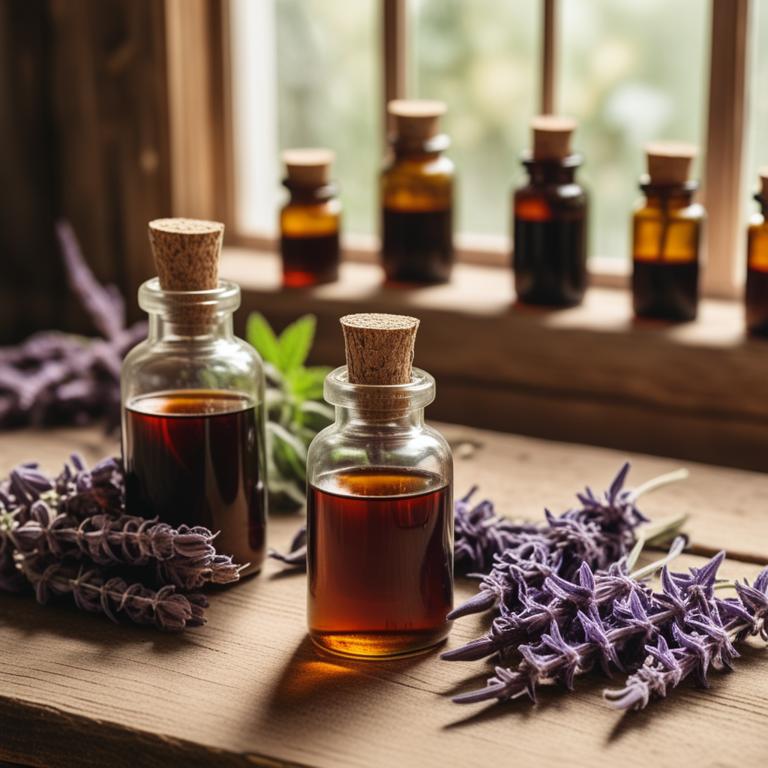
Herbal tinctures for high cholesterol are liquid extracts made from plant-based ingredients that are used to reduce cholesterol levels and improve overall cardiovascular health.
These herbal remedies have been shown to offer several benefits, including lowering LDL (bad) cholesterol, increasing HDL (good) cholesterol, and preventing blood clots.
Some examples of herbal tinctures used to treat high cholesterol include Hawthorn, which helps to improve blood flow and reduce blood pressure; Garlic, which has natural anti-inflammatory properties that help to reduce triglycerides; Turmeric, which contains curcumin that has antioxidant properties that help to prevent plaque buildup in arteries; Ginger, which helps to reduce inflammation and improve circulation; and Ginkgo Biloba, which improves blood flow and reduces the risk of blood clots.
Additionally, herbal tinctures such as Green Tea, Red Clover, and Artichoke extract are also being used to help regulate cholesterol levels and promote overall cardiovascular health.
According to "Atherosclerosis", tinctures for high cholesterol, specifically the tincture of Crataegus (TCR), may help lower cholesterol levels by upregulating LDL-receptors, increasing bile acid excretion, and suppressing hepatic cholesterol synthesis.
Below there's a list of the 13 best herbal tinctures for high cholesterol.
- 1. Salvia miltiorrhiza tinctures
- 2. Astragalus membranaceus tinctures
- 3. Allium sativum tinctures
- 4. Glycine max tinctures
- 5. Zingiber officinale tinctures
- 6. Panax ginseng tinctures
- 7. Panax notoginseng tinctures
- 8. Ginkgo biloba tinctures
- 9. Panax quinquefolius tinctures
- 10. Foeniculum vulgare tinctures
- 11. Momordica charantia tinctures
- 12. Ephedra sinica tinctures
- 13. Glycyrrhiza glabra tinctures
Also you may be interested in...
TODAY'S FREE BOUNDLE
Herb Drying Checklist + Herbal Tea Shopping List + Medicinal Herbs Flashcards
Enter you best email address below to receive this bundle (3 product valued $19.95) for FREE + exclusive access to The Aphotecary Letter.
$19.95 -> $0.00
1. Salvia miltiorrhiza tinctures
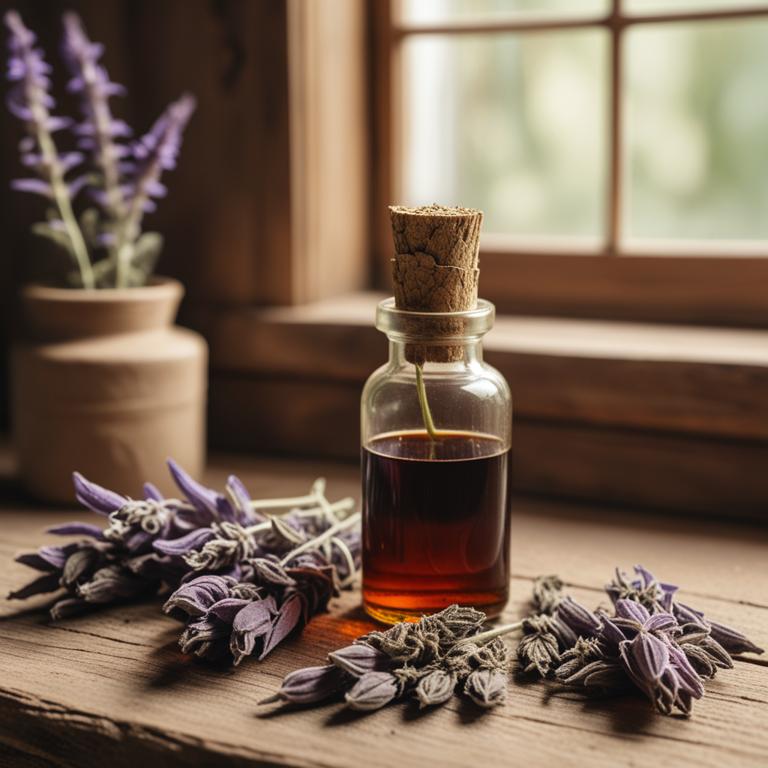
Salvia miltiorrhiza tinctures have been traditionally used to treat high cholesterol, and research suggests that they may be effective in reducing cholesterol levels due to their anti-inflammatory and antioxidant properties.
The bioactive constituents, including salvianolic acids and phenolic acids, help to inhibit the activity of HMG-CoA reductase, a key enzyme involved in cholesterol production.
By reducing the production of cholesterol in the liver, Salvia miltiorrhiza tinctures can help to lower overall cholesterol levels and improve cardiovascular health.
The benefits of using Salvia miltiorrhiza tinctures to treat high cholesterol include reduced risk of heart disease, improved lipid profiles, and a natural approach to managing cholesterol levels.
2. Astragalus membranaceus tinctures
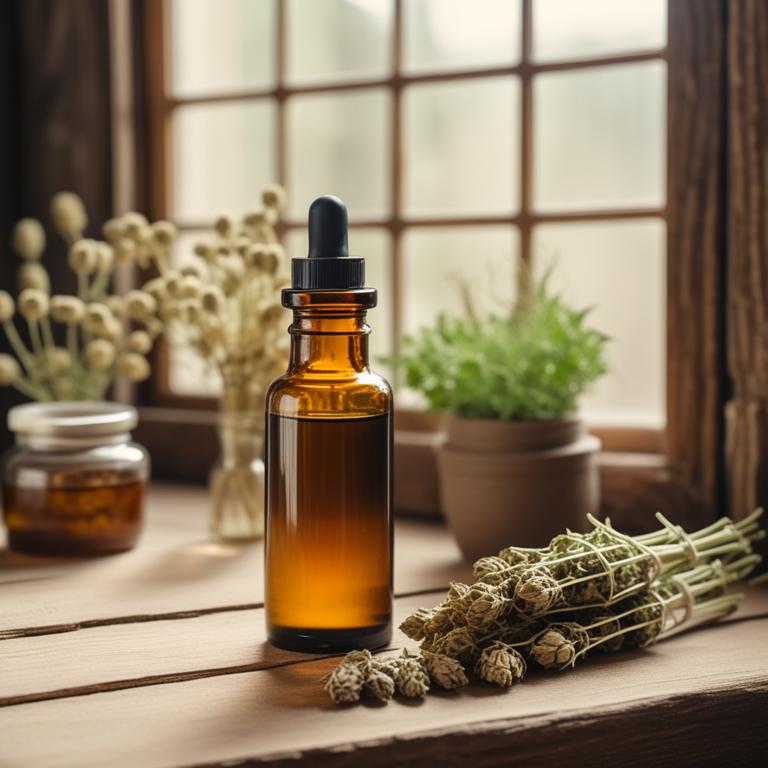
Astragalus membranaceus tinctures have been traditionally used to treat high cholesterol by exhibiting hypolipidemic properties, which help to reduce the levels of low-density lipoprotein (LDL) cholesterol and triglycerides in the blood.
The herbal preparation achieves this by acting as an antioxidant, anti-inflammatory, and lipid-lowering agent, thereby protecting the cardiovascular system from damage caused by excessive cholesterol.
The bioactive constituents of Astragalus membranaceus tinctures, including saponins, flavonoids, and phenolic acids, are responsible for their therapeutic effects, which include inhibiting the production of cholesterol in the liver and improving the function of the liver and kidneys.
By consuming Astragalus membranaceus tinctures, individuals can experience several benefits, including improved lipid profiles, reduced blood pressure, and enhanced cardiovascular health, ultimately reducing the risk of atherosclerosis and related cardiovascular diseases.
Related Study
According to "Alternative medicine review : a journal of clinical therapeutic", Astragalus membranaceus tinctures may have therapeutic benefit for high cholesterol treatment due to its in vitro antioxidant activity, which is the mechanism by which it affords its cardioprotective benefit.
3. Allium sativum tinctures
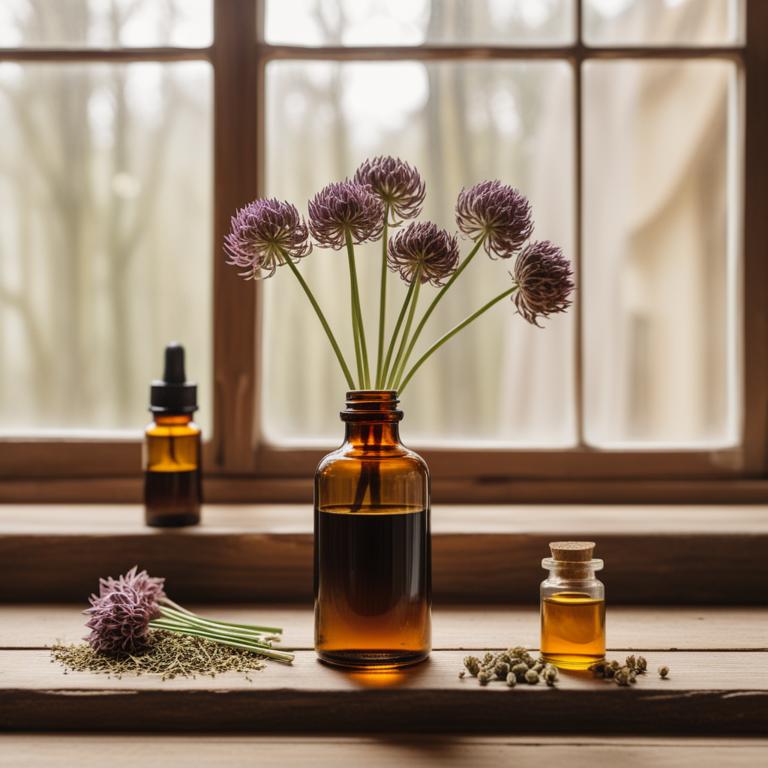
Allium sativum tinctures, derived from garlic, have been traditionally used to treat high cholesterol levels due to their potential to lower LDL cholesterol and triglyceride levels.
The bioactive constituents, including allicin and its derivatives, have been found to inhibit the formation of cholesterol in the liver and increase the excretion of bile acids, thereby reducing overall cholesterol levels.
Additionally, Allium sativum tinctures may help to improve cardiovascular health by preventing the formation of blood clots and reducing inflammation in the blood vessels.
The benefits of using Allium sativum tinctures to treat high cholesterol include reduced risk of heart disease, improved lipid profiles, and overall cardiovascular health.
Related Study
According to "Klinicheskaia meditsina", Allium sativum tinctures, specifically Allicor, a preparation with prolonged activity, reduced the concentration of cholesterol and low-density lipoprotein in men by 23.5 +/- 6.6 mg/dl (p = 0.004).
4. Glycine max tinctures

Glycine max tinctures, derived from the soybean plant, have been traditionally used to help manage high cholesterol levels due to their potential to inhibit the absorption of dietary cholesterol and reduce the production of LDL (low-density lipoprotein) cholesterol in the liver.
The bioactive constituents of Glycine max, including isoflavones and saponins, have been shown to exhibit antioxidant and anti-inflammatory properties, which contribute to their cholesterol-lowering effects.
These properties help to improve lipid profiles by reducing triglycerides, LDL cholesterol, and total cholesterol levels while increasing HDL (high-density lipoprotein) cholesterol levels.
Regular use of Glycine max tinctures may help to reduce the risk of cardiovascular disease associated with high cholesterol, offering a natural and potentially effective alternative to conventional treatments.
5. Zingiber officinale tinctures

Zingiber officinale tinctures, derived from the rhizome of the ginger plant, have been traditionally used to help treat high cholesterol levels due to their anti-inflammatory and antioxidant properties.
The bioactive constituents present in Zingiber officinale tinctures, such as gingerols and shogaols, have been shown to inhibit the production of cholesterol in the liver, reduce inflammation in the blood vessels, and improve lipid profiles.
By consuming Zingiber officinale tinctures, individuals may experience benefits such as reduced triglyceride levels, improved HDL cholesterol levels, and a decrease in the risk of cardiovascular disease.
Regular consumption of Zingiber officinale tinctures may also help to mitigate the symptoms of high cholesterol, promoting overall cardiovascular health and well-being.
6. Panax ginseng tinctures
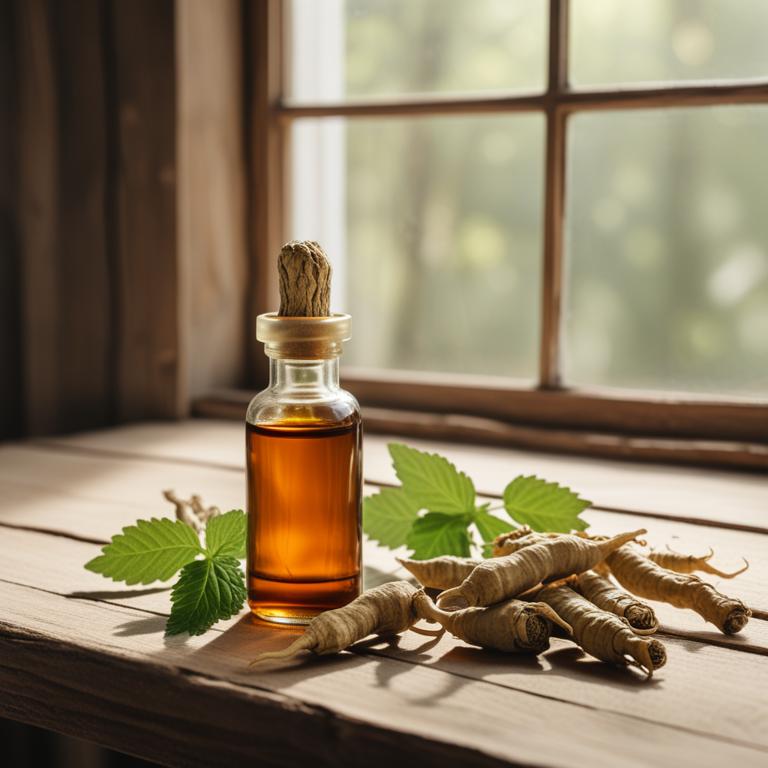
Panax ginseng tinctures have been traditionally used to treat high cholesterol, a condition characterized by elevated levels of low-density lipoprotein (LDL) cholesterol in the blood.
The bioactive constituents of Panax ginseng, including ginsenosides and saponins, help to lower LDL cholesterol levels and improve lipid profiles by inhibiting the activity of HMG-CoA reductase, a key enzyme involved in cholesterol synthesis.
Additionally, Panax ginseng tinctures have anti-inflammatory and antioxidant properties, which can help to reduce oxidative stress and inflammation in the body, further contributing to the reduction of high cholesterol levels.
The benefits of using Panax ginseng tinctures to treat high cholesterol include improved lipid profiles, reduced risk of cardiovascular disease, and enhanced overall cardiovascular health.
Related Study
According to "The American journal of Chinese medicine", Panax ginseng tinctures for high cholesterol may help reduce plasma total cholesterol, triglyceride, and NEFA levels, while also increasing HDL-cholesterol and decreasing platelet adhesiveness.
7. Panax notoginseng tinctures

Panax notoginseng tinctures have been traditionally used to treat high cholesterol, a condition characterized by elevated levels of low-density lipoprotein (LDL) cholesterol in the blood.
The properties of Panax notoginseng tinctures that contribute to its cholesterol-lowering effects include its ability to inhibit the production of LDL cholesterol and increase the activity of high-density lipoprotein (HDL) cholesterol, also known as the "good" cholesterol.
The bioactive constituents of Panax notoginseng tinctures, including ginsenosides and saponins, play a crucial role in its cholesterol-lowering effects by regulating lipid metabolism and inhibiting the expression of genes involved in cholesterol synthesis.
Regular use of Panax notoginseng tinctures has been shown to help reduce total cholesterol levels, improve lipid profiles, and decrease the risk of cardiovascular disease associated with high cholesterol.
Related Study
According to "Zhongguo Zhong yao za zhi = Zhongguo zhongyao zazhi = China journal of Chinese materia medica", Panax notoginseng tinctures may help reduce high cholesterol by inhibiting vascular smooth muscle cell proliferation induced by hyperlipidemia serum.
8. Ginkgo biloba tinctures

Ginkgo biloba tinctures have been traditionally used to treat high cholesterol due to their flavonoid and terpenoid properties, which help to improve blood lipid profiles and reduce triglycerides.
The bioactive constituents present in Ginkgo biloba tinctures, including bilobalide and ginkgolides, are believed to help improve blood circulation and reduce inflammation, thereby contributing to the management of high cholesterol.
The flavonoids in Ginkgo biloba tinctures also possess antioxidant properties, which can help protect against the oxidative stress associated with high cholesterol.
Regular use of Ginkgo biloba tinctures may help to lower total cholesterol levels, improve high-density lipoprotein (HDL) levels, and reduce the risk of cardiovascular disease associated with high cholesterol.
Related Study
According to "Acta pharmacologica Sinica", Ginkgo biloba tinctures may have potential clinical applications in treating high cholesterol by inhibiting VEGF-induced hyperpermeability of endothelial cells.
9. Panax quinquefolius tinctures
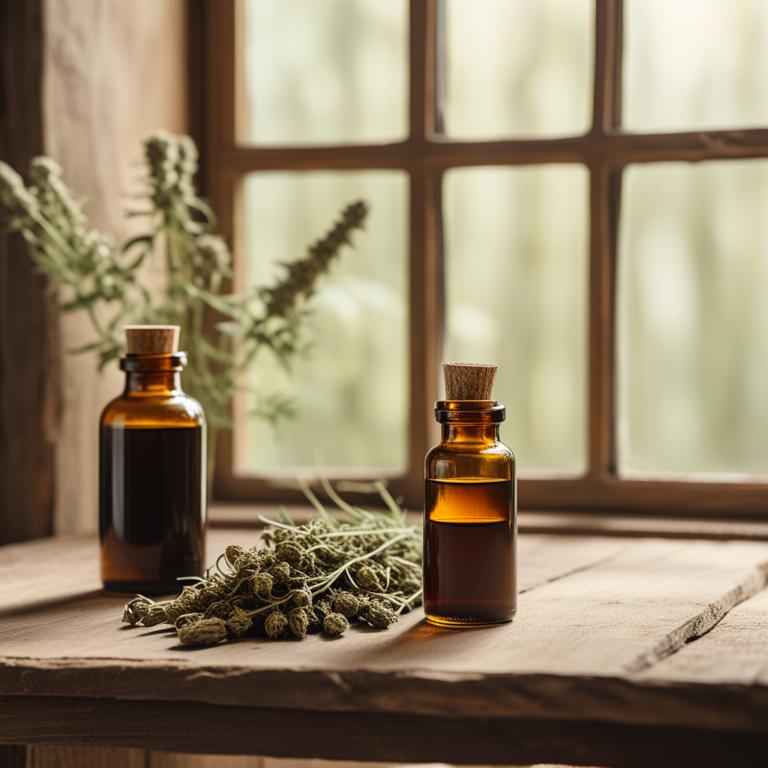
Panax quinquefolius tinctures have been traditionally used to treat high cholesterol due to their ability to help lower lipid levels and improve overall cardiovascular health.
This herbal preparation works by inhibiting the absorption of dietary cholesterol and increasing the elimination of bile acids, which in turn helps to reduce the amount of cholesterol in the blood.
The bioactive constituents of Panax quinquefolius, including ginsenosides and flavonoids, are responsible for its cholesterol-lowering effects, as they help to reduce the activity of an enzyme involved in cholesterol production and increase the expression of genes involved in cholesterol elimination.
The benefits of using Panax quinquefolius tinctures to treat high cholesterol include improved lipid profiles, reduced risk of cardiovascular disease, and enhanced overall cardiovascular health.
10. Foeniculum vulgare tinctures
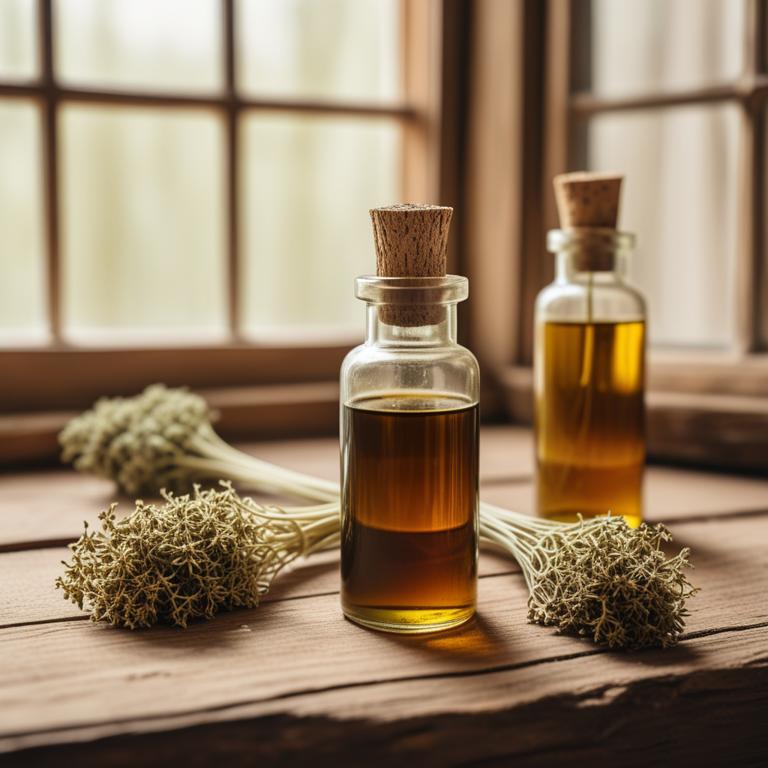
Foeniculum vulgare tinctures have been traditionally used to help treat high cholesterol levels due to their ability to lower cholesterol and triglyceride levels in the blood, thereby reducing the risk of heart disease.
The bioactive constituents present in these tinctures, such as volatile oils, flavonoids, and phenolic acids, have been found to possess anti-inflammatory and antioxidant properties that contribute to their cholesterol-lowering effects.
By inhibiting the absorption of dietary cholesterol in the gut and improving lipid metabolism, Foeniculum vulgare tinctures help to reduce the levels of LDL (bad) cholesterol and increase the levels of HDL (good) cholesterol.
The benefits of using Foeniculum vulgare tinctures to treat high cholesterol include reduced risk of cardiovascular disease, improved overall cardiovascular health, and a decrease in the risk of stroke and other cardiovascular events.
11. Momordica charantia tinctures

Momordica charantia tinctures have been traditionally used to treat high cholesterol levels due to their lipid-lowering and antioxidant properties.
The bioactive constituents, including charantin and momordic acids, have been shown to inhibit the synthesis of cholesterol in the liver, thereby reducing overall cholesterol levels.
By inhibiting the activity of key enzymes involved in cholesterol production, Momordica charantia tinctures help to lower LDL cholesterol levels and improve overall cardiovascular health.
Regular consumption of these tinctures may also help to reduce triglyceride levels and prevent the formation of blood clots, ultimately reducing the risk of cardiovascular diseases.
12. Ephedra sinica tinctures
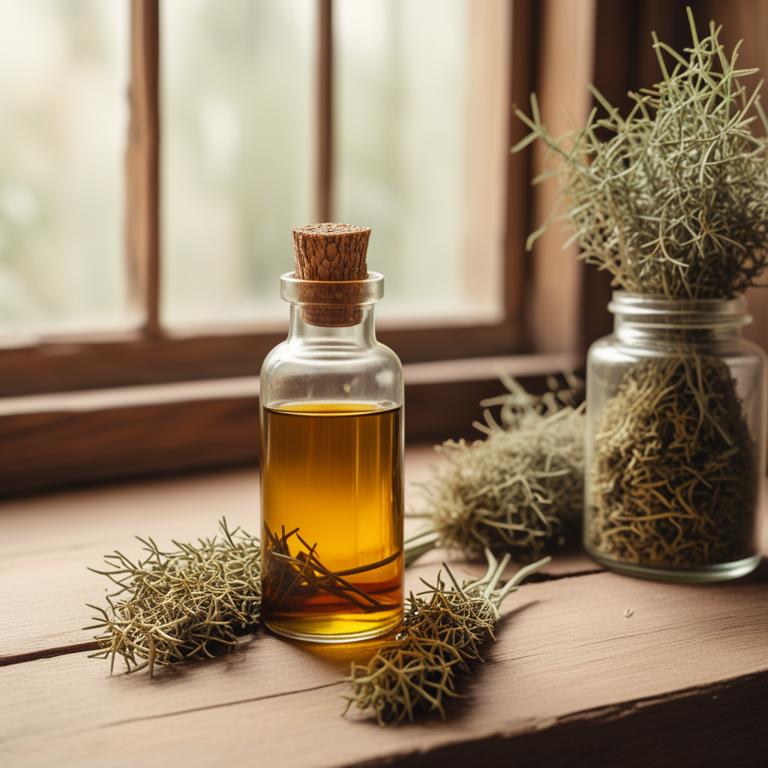
Ephedra sinica tinctures have been traditionally used to treat high cholesterol due to its properties that help to lower lipid levels and improve cardiovascular health.
The herbal preparation works by inhibiting the absorption of dietary cholesterol and reducing the production of very-low-density lipoprotein (VLDL) in the liver, which contributes to high cholesterol levels.
The bioactive constituents present in Ephedra sinica tinctures, such as ephedrine and norephedrine, have been shown to possess lipid-lowering and vasodilatory effects, making it an effective treatment for high cholesterol.
Regular use of Ephedra sinica tinctures has been associated with improved lipid profiles, reduced triglyceride levels, and a lower risk of cardiovascular disease, making it a beneficial herbal remedy for individuals struggling with high cholesterol.
13. Glycyrrhiza glabra tinctures

Glycyrrhiza glabra tinctures have been traditionally used to help treat high cholesterol levels due to their anti-inflammatory and antioxidant properties, which aid in reducing lipid peroxidation and inhibiting the formation of atherosclerotic plaques.
The bioactive constituents of Glycyrrhiza glabra tinctures, including glycyrrhizic acid and flavonoids, help to modulate lipid metabolism and improve the ratio of high-density lipoprotein (HDL) to low-density lipoprotein (LDL) cholesterol.
By reducing inflammation and oxidative stress in the cardiovascular system, Glycyrrhiza glabra tinctures help to lower total cholesterol and triglyceride levels, as well as LDL cholesterol, thereby reducing the risk of cardiovascular disease.
Regular consumption of Glycyrrhiza glabra tinctures may also help to improve overall cardiovascular health and reduce the risk of atherosclerosis and myocardial infarction.